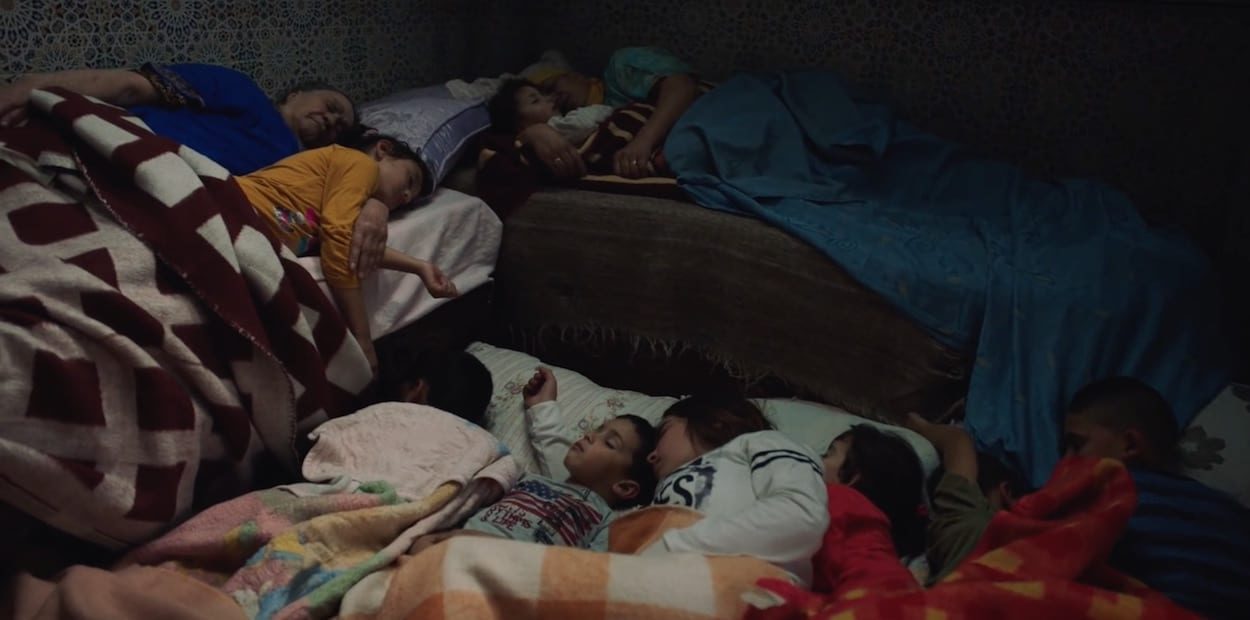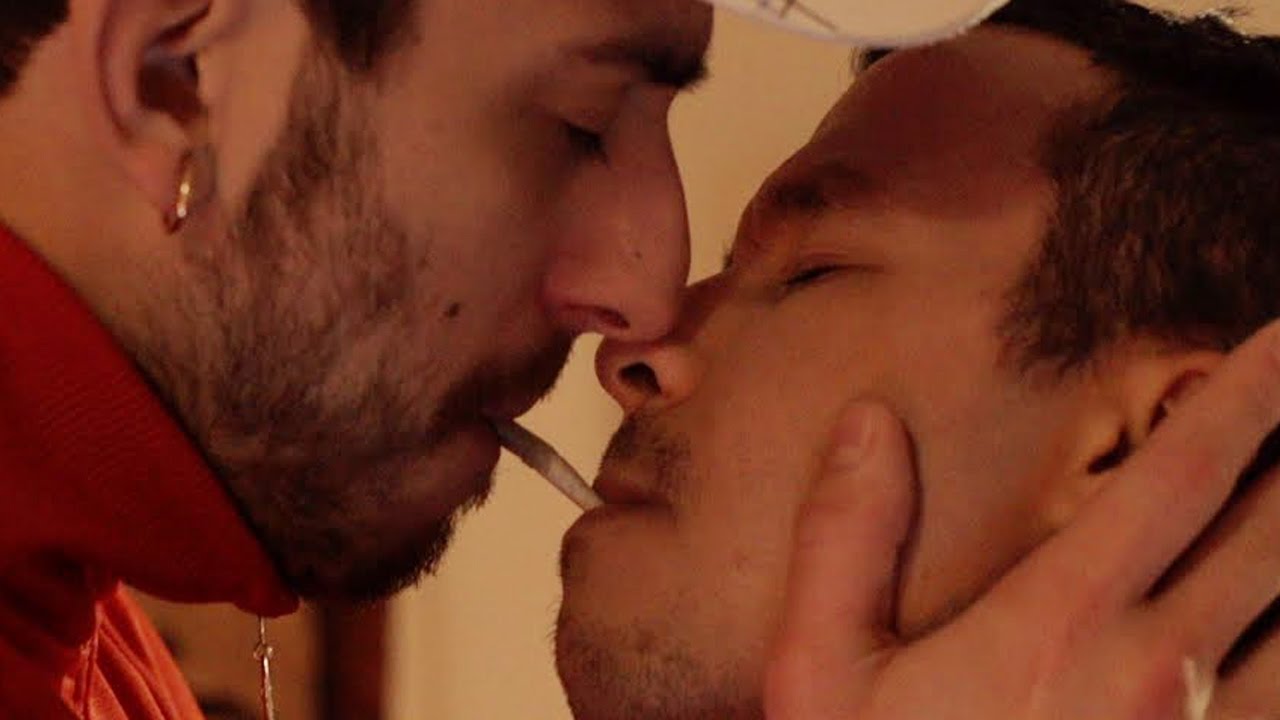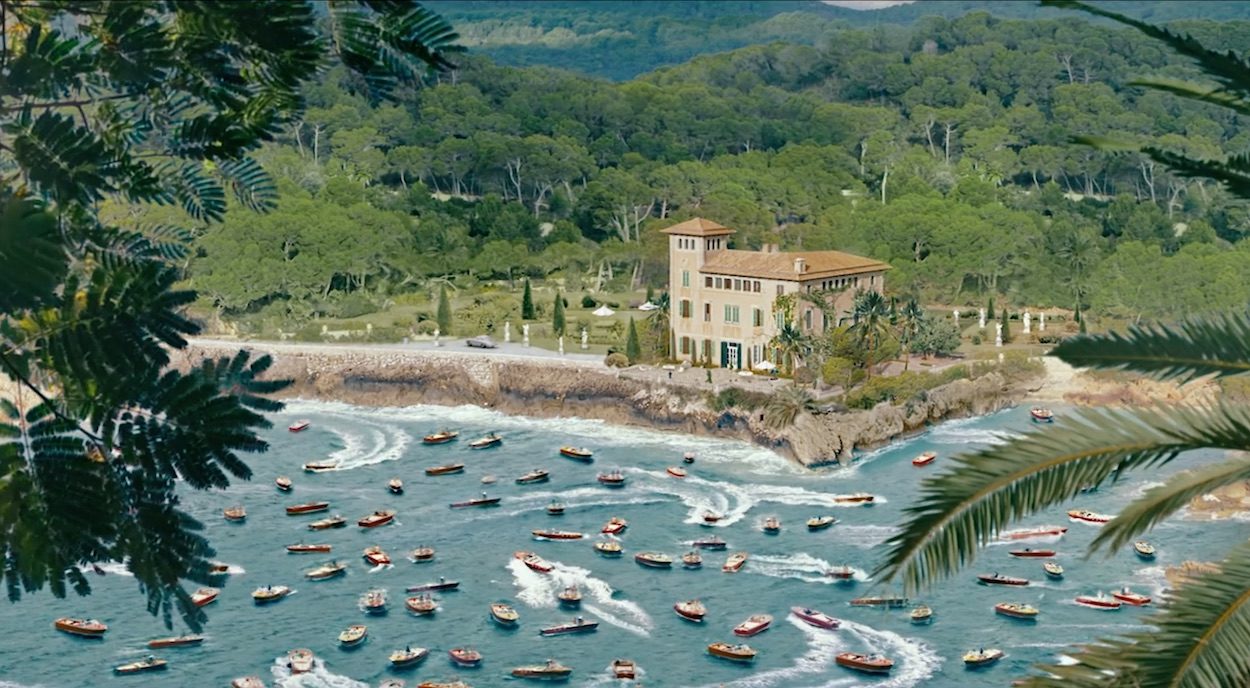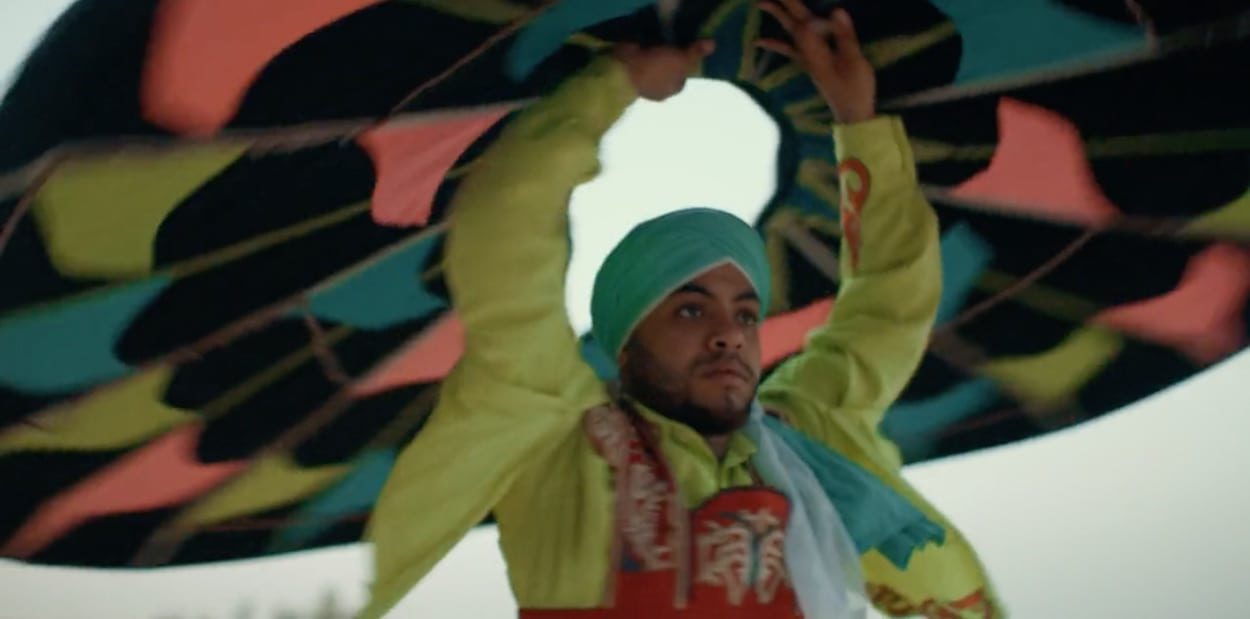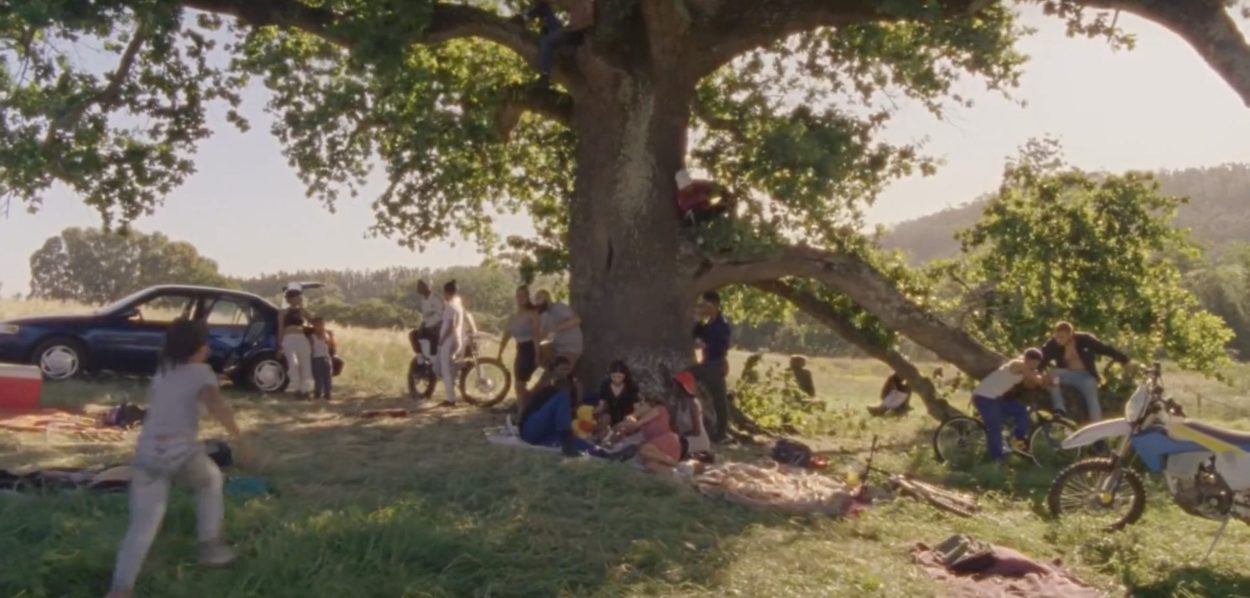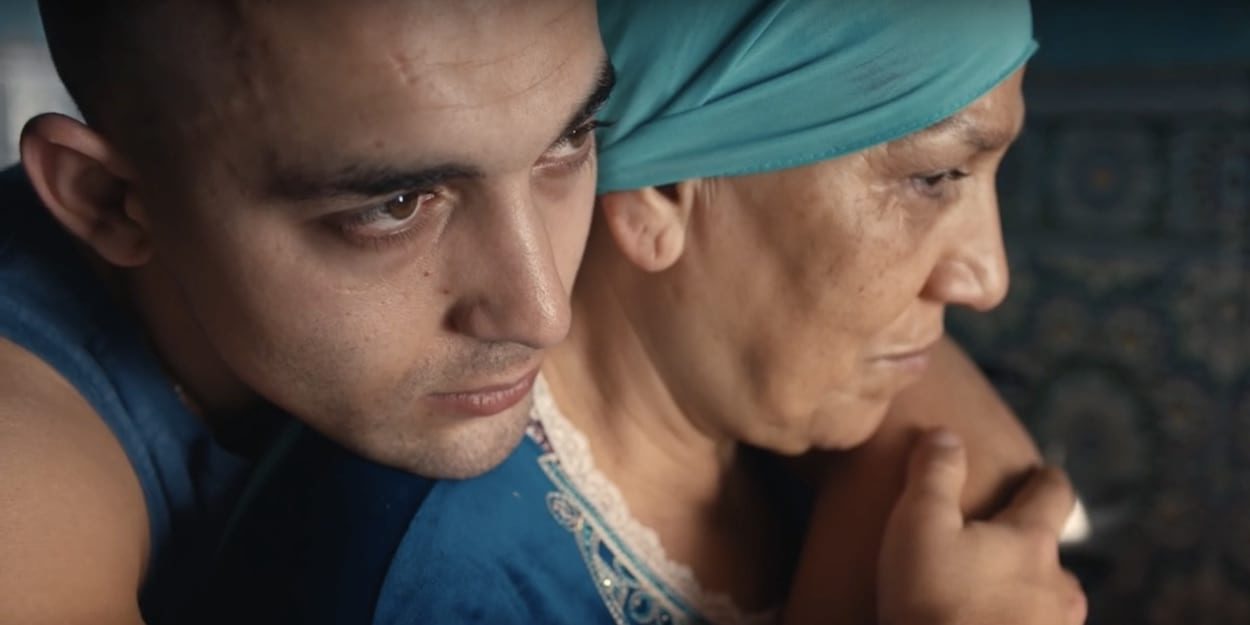Territory and your first video, Virile, both capture that intimate ease and physicality of male friendship and close family bond that is perhaps expressed more freely in Arabic cultures than in more restrained western ones. Nothing feels staged. What was your creative process for achieving such natural and genuine performances?
A lot of the work is done during the casting. It’s a crucial part for us. This is where we try to choose the right characters who have something personal to share in relation to the theme of our narrative.
I think instinct plays a big part in choosing these characters but also luck. For example when choosing the “Mama” of Dali (our hero) we didn’t know that she hadn’t see her own son who now lives in France for 10 years… Naturally when she saw Dali crying she naturally expressed what she was feeling inside. It was really intense on the set.
To what extent are the films autobiographical – in Virile there’s a sense that the two guys are actually you two?
Our films are not autobiographical but it’s true that we use a lot of our own very personal experiences, feelings, ideas etc. That link is important to us, it allows us to make sincere work.
Why did you decide to set Territory in Algiers? And what is your relationship with Algeria?
Our producer first came up with the idea and when we started to write Territory, we realized that Algeria was a perfect place for this story. We’d never been there before, so our relationship with the country was first artistic but in the end, like every time, we fell in love with the people living there. We really felt a lot of deep emotion with them.
When and how did you start making music together?
Guillaume: It all started with Jonathan’s final study project. He had to make a video clip and was searching for an artist. I was making dub music at that time. He clipped one of my tracks but needed the track to be more “cinematographic” to fit with the idea he had in mind. So we started working on this project and then making more music together and developing our film. That’s how we created The Blaze.
There are limited shots – in Territory we counted 25 – with each scene lit and framed perfectly. The crafting of the film has been acknowledged at Cannes Lions. How did you learn your distinctive filmmaking – did you go to film school or has it been more experimental and self-taught?
Jonathan: I went to film school in Belgium although now I think it’s not necessary to spend so much time and money going to a film school. It’s cool for meeting people with the same passion as you but the best way to learn is by experimenting yourself. Like they say, “Practice makes perfect”.
Guillaume: I did photography school concurrently with music, which is another approach to depicting people with image, maybe a more instinctive way. That’s maybe why our cinema is a bit experimental, a mix between instinct and cerebral, technical and self-taught.
Do you start with the narrative idea or the music?
Both. We are constantly reworking both.
Even after multiple viewings of Territory you notice more layers of storytelling, the emotional complexities of his homecoming and the sense that he is slightly apart because he’s been away and experienced other things. Is this so or are we reading too much into it?
The theme we chose to explore is very complex… This feeling is universal in the way everyone can be that person who had to leave family or home… And finally it talks to a lot of people depending on their own experience of life.
What was your process for writing the script?
We watched movies in relation to the theme, we searched our old ideas for something that matched the theme and we were inspired a lot by photos. In fact nothing really special. The most important thing was being able to take our time. It took us six months to prepare a consistent project.
Territory, and also Virile, are meticulously mixed fusions of music and film. To what extent is everything planned in pre-production or do you keep refining and polishing the edit? What is your edit process – do you work on it yourselves or with an editor?
The more we plan in pre-production, the more confident we feel on the set. It’s a sine qua non condition to enter the production phase. But we all know that even if we try to build the strongest foundations there is always a part that is unknown. For the editing part we always start at home, comfortable, at ease. But it depends on the project.
For Virile the original idea fitted perfectly with the editing we had in mind before starting to shoot. So the edit took like two days. We had so much interesting material for Territory that we decided to work with an editor to have a fresh look. It took much more time. It was two different ways of working but both ways were very interesting and intense.
Did you capture everything in the initial shoot or did you have to go back to pick up some scenes? Did you work with a cinematographer?
Yes, we captured everything and more than we imagined in the initial shoot. We had the chance to be really well surrounded with some brilliant people, from the producer to the local dream team. To name just two of them: Benoit Soler the cinematographer and Loic Andrieu the steadycamer.
Territory feels a much bigger production on every level and yet Virile has all the hallmarks of great filmmaking – allowing the viewer in on an intimately shared moment of friendship with perfect pacing and music. Was it budget that allowed you to create a more complex and bigger film?
It’s not really a question of budget. Of course the budget for Territory was bigger than Virile and allowed us to shoot outside of France with a lot of actors. But no matter what the budget is, the most important thing is the idea and how you will bring emotion into the video. We try to speak about humans and show universal feelings with them. The kind of things that no budget can buy.
Territory on another level is also brilliant subtle branded content for Nike. Was this intentional?
Of course not!
What next for The Blaze? Do you feel Territory is a hard act to follow or are ideas already bouncing around for your third film?
Of course we feel some pressure since Territory is working quite well. Pressure comes with success. But it will never stop all the ideas bouncing in our head for sure! What we love is doing music and cinema. We’re happy with the success but we are trying to stay far from the pressures that come with it. That’s the best way to keep our inspiration safe. We still have so many things to say with The Blaze.
Although you have a fresh distinctive film language of your own what filmmakers have influenced you?
Just to name a few:
Romain Gavras
Daniel Wolfe
Spike Jonze
Johan Renck
Andrea Arnold
Alejandro Iñarritu
Ken Loach
Mickael Hanneke
Jia Zhangke
Joachim Trier
